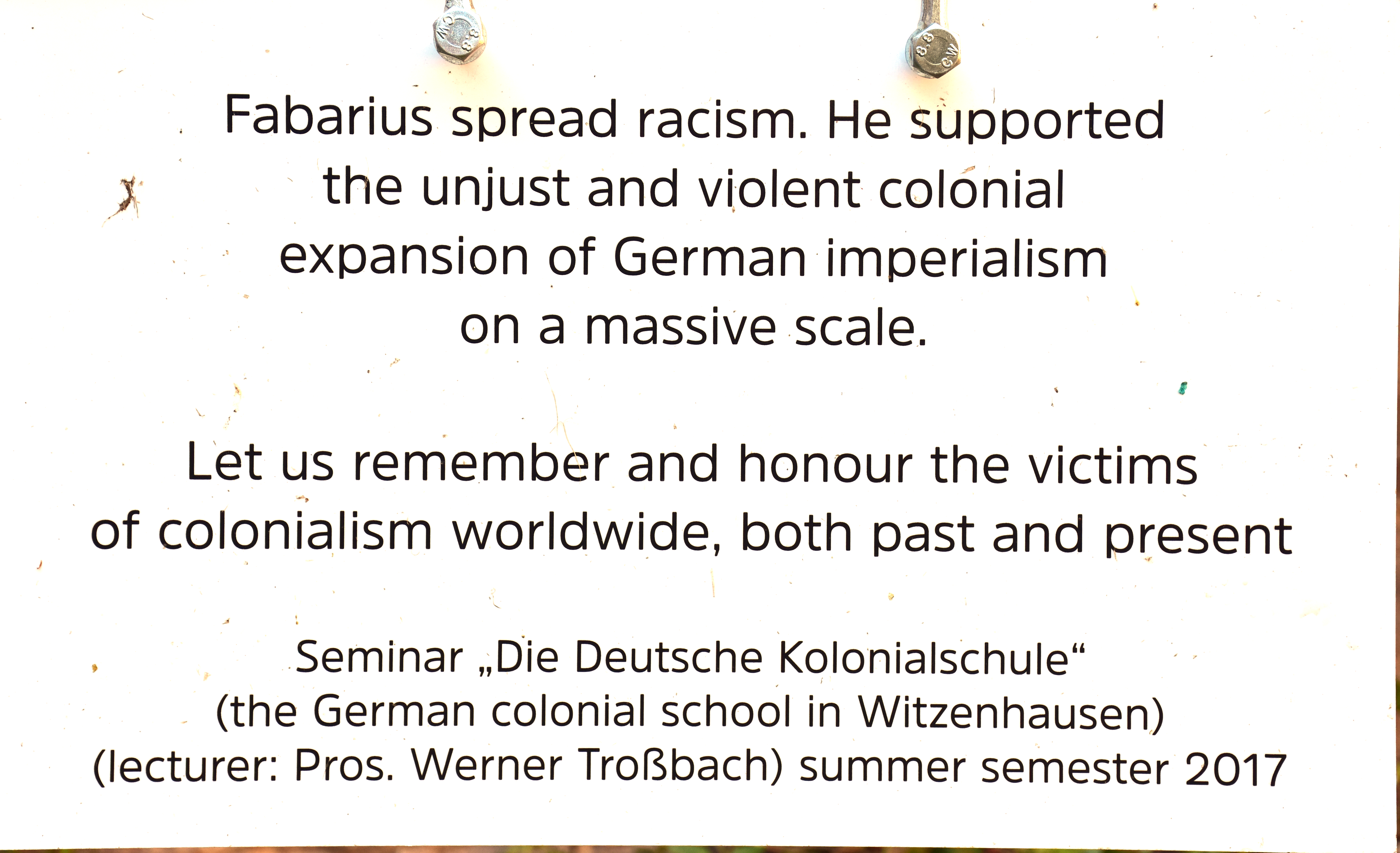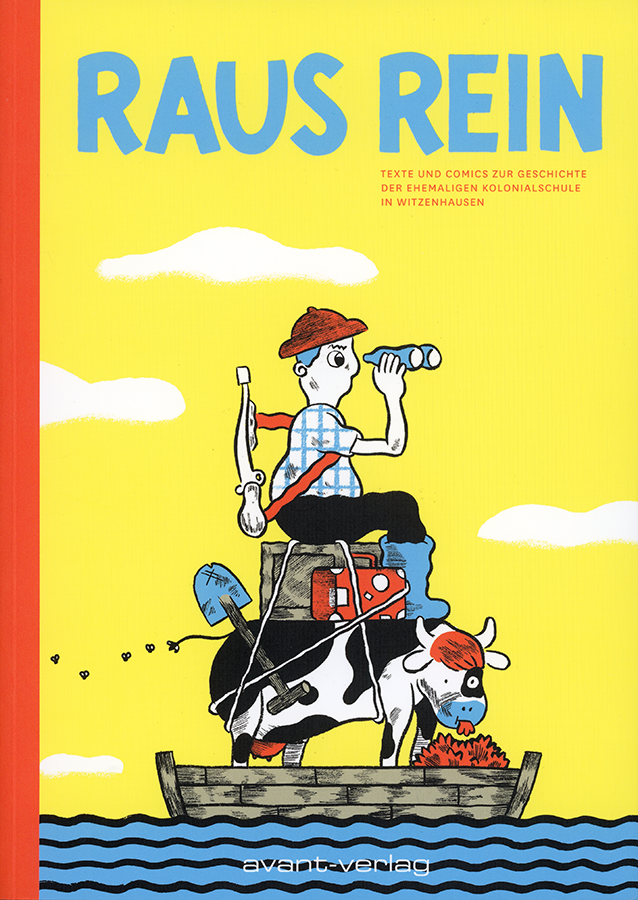|
The monument of E.A. Fabarius (*1859 in Saarlouis † 1927 in Witzenhausen), the founding director of the German Colonial School DKS in Witzenhausen, is part of the DITSL real estate on the Campus Steinstasse in Witzenhausen. |
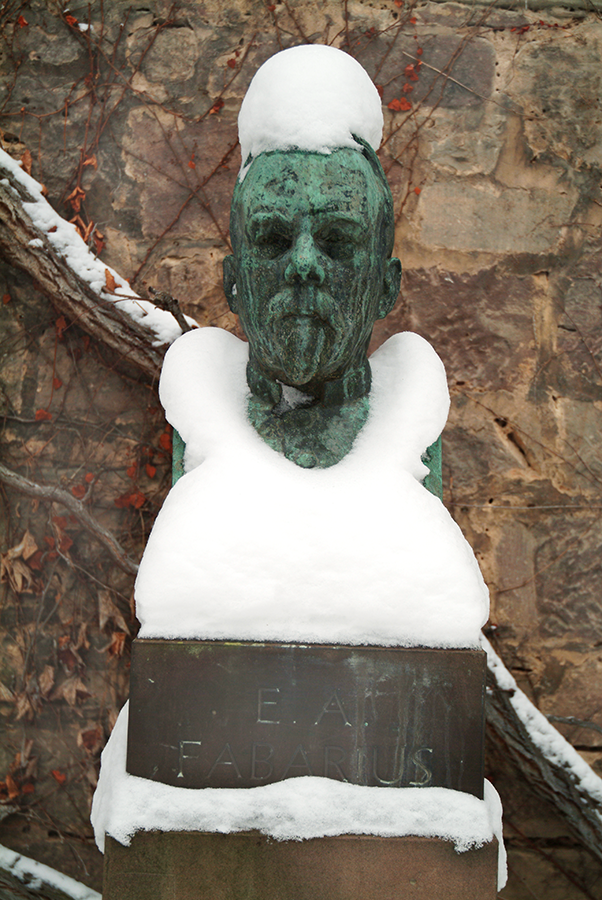 |
With the transition of the DKS to the German Institute for Tropical and Subtropical Agriculture GmbH (DITSL) in 1956, the monument became the property of DITSL GmbH. Since its installation, it stood uncommented in the same place. Over time, the public awareness of Fabarius and his doings decreased and with it the visibility of the site's colonial past. Therefore, DITSL GmbH erected an information board (by M Hulverscheidt & C Hülsebusch) next to the monument in 2016. The information text translates as follows:
E. A. Fabarius was director of the German Colonial School from 1898 until his death. Descendant of a protestant pastor's family, he studied theology, national economy, political science, geography and history. He worked initially as divisional pastor in Koblenz, was secretary of the Koblenz branch of the German Colonial Society, and secretary of the Rhenish Section of the Protestant Africa Association. With support of these networks, he decisively pursued the establishment of the colonial school. Backed by influential circles of German aristocracy, Rhineland merchants, manufacturers and companies founded the German Colonial School as a private limited liability company in 1898 (without financial support from missionary societies). The school was established as boarding school in a former monastery building in Witzenhausen in the same year. Until its closure in 1994, the school prepared about 2,300 young men and five women for life and work in the colonies. The admission procedure was strict and many students dropped out prematurely. The training lasted two years, usually preceded by a practical year. The graduates were awarded a diploma "Diplom-Kolonialwirt". Fabarius' work was determined by Protestant virtues such as diligence, honesty and striving. He taught colonial economics, ethnology, religious history, cultural history and geography. He made his first and only trip to a German colony (Namibia, then German Southwest Africa) in the early summer of 1910. His students and children described him as "patriarchal and authoritarian", nationally patriotic and Prussian conservative. Although he lived in the school premises with his family, his students considered him unapproachable. After his death, he was buried under the chapel he had built. His bust was inaugurated on the occasion of the school's 30th anniversary in 1929. During annual alumni meetings, flowers were regularly laid down here in memory of the deceased of the colonial school and its successor institutions.
The German original text was also published in the cartoon book "Raus Rein" published. https://www.avant-verlag.de/comics/raus-rein/.
| In 2017, students of a history seminar led by Prof. Dr. Werner Troßbach (Faculty of Organic Agricultural Sciences of the University of Kassel) supplemented the text and appended the information board. |
|
The monument has to date been a constant crystallization point for the societal debate on the colonial past in Witzenhausen and beyond. In this context, monument and information board have both been the subject of construction, deconstruction, and publication.
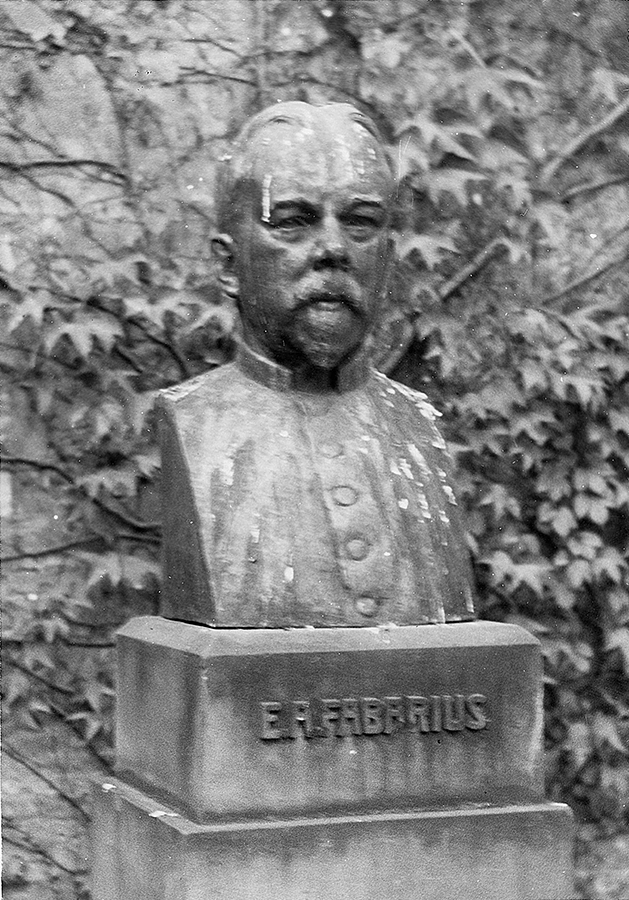 |
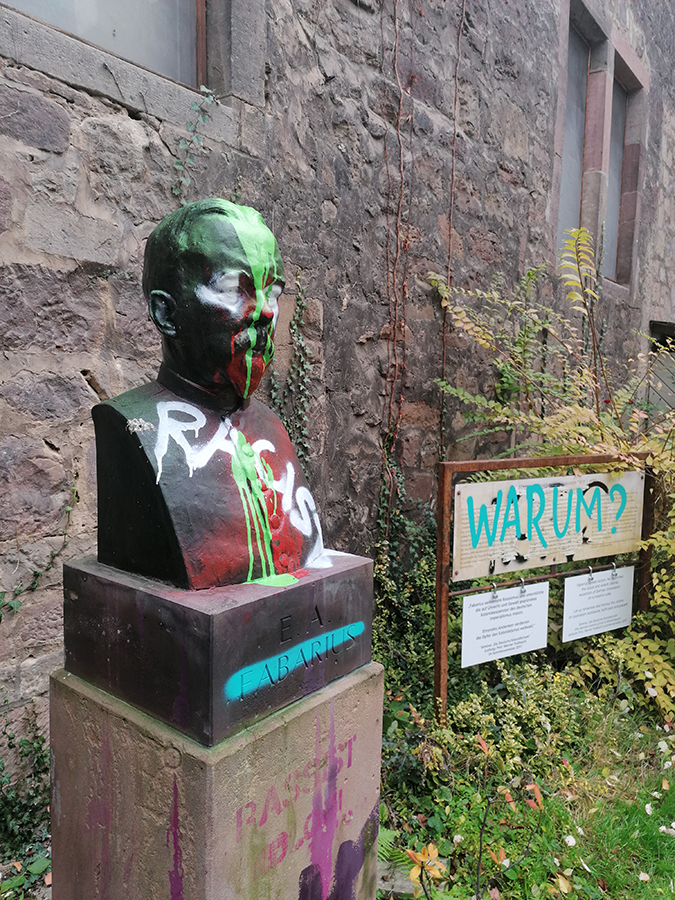 |
|
| Construction | Deconstruction | Publication |

